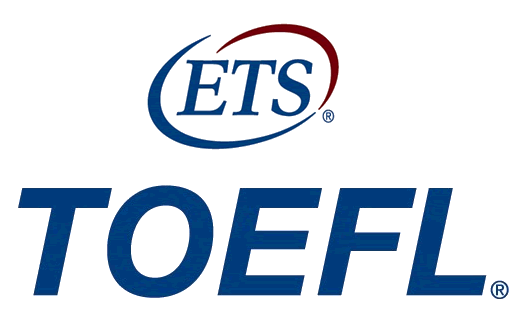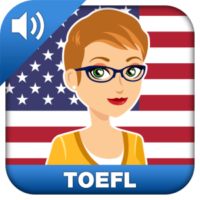Do you want to test your level of English with an exam? If so, the TOEFL is a great option. The TOEFL (Test of English as a Foreign Language) is one of the most widespread English examinations in the world. Passing this exam will add weight to your CV/resume and will help your chances of getting a good job that requires a high level of English. If you’re a student, the TOEFL is an essential tool for studying and teaching abroad. Luckily, it isn’t too difficult to study for when you know how to take it. That’s why we’ve devoted this article to 5 tips to help you pass the TOEFL.
But be careful! If you want to master the TOEFL, you must optimize your study habits. Do not make the same error that most do in preparing for the exam and rely on simple, sporadic study sessions. Instead, studying regularly and precisely are the keys to your success.

1. Familiarize Yourself with the TOEFL
Knowing what to expect is perhaps the most important step in preparing yourself. Why is this? Because it allows you to focus your efforts on the elements of the exam which yield the most points. Even if you have an advanced level of English and feel confident, beware! The TOEFL has tons of surprises, and it’s best to know how the exam is formatted in order not to be taken by surprise and to remain calm in the face of challenges.
Here are some things to know about the TOEFL:
1. It’s divided into four parts: Reading, Listening, Speaking, Writing.
2. It lasts four hours, and it’s taken in a room, on a computer (as is the case with the TOEFL iBT, which is the most common).
3. The Reading and Listening parts last one hour and one and a half hour, respectively.
4. The Speaking and Writing parts last between 20 to 50 minutes.
If you want to learn more about the TOEFL, you can visit their official website: www.ets.org/toefl
2. Begin Preparing in Advance
Regardless of the score you want to achieve or your level of English, you must prepare yourself in advance.
As you may already know if you regularly read the MosaLingua blog, it takes time and repetition in order to put a word into your long-term memory vault. So if you want to prepare for the TOEFL, you’re far better off studying in short increments every day. Make a schedule to see where you stand on time and how much of it you can devote to studying for the TOEFL.
Besides helping your memorization, preparing in advance will make you more confident. You won’t be in a panic after having crammed all your preparations into a couple of days and will remain calm on D-Day, able to give it your best shot.
3. Learn Suitable Vocabulary
The vocabulary on the TOEFL is focused on academic life and university studies. You must leave informal and routine speech behind and begin to learn new vocabulary sets. Watching documentaries, listening to seminars, and reading textbooks and academic journals are great ways to pick up new words, phrases, and grammatical structures.
If you’re a regular reader, you already know the best method to learn new vocabulary: The Spaced Repetition System integrated into the MosaLingua apps. We are currently creating an app specifically for helping you pass the TOEFL. The application will contain 2,000 of the most frequent words on the exam. Once it’s released, you’ll be able to easily study for the TOEFL anywhere!
4. Learn How to Take Notes
Taking notes while studying for the TOEFL is important for two reasons:
- It helps you ingrain new vocabulary into your memory.
- It enables you to simplify and summarize information, both of which will be necessary for the exam.
There are many strategies for taking notes, but the most effective is to simply jot down the most important information — whether it’s a recording, lecture, or text. It’s important to focus your attention on the material and add supplementary information which will enrich what you take away from the learning instrument.
In order to train yourself on taking notes, get in the habit of reading texts, listening to talk radio or even studying other subjects and following the above instructions.
5. Practice Your Oral Presentation Skills
One of the difficulties of passing the TOEFL is speaking in front of a computer in a room full of people doing the exact same thing at the exact same time. It’s distracting, to say the least, and may be intimidating to shy speakers — but don’t panic! With a little practice and training, you will easily break down these psychosomatic barriers and will quickly improve your speaking skills.
If you feel unprepared, ask a friend, tutor or family member to listen to you summarize a reading or discussion after you’ve already taken notes on it. While this may seem simple or unnecessary, it’s good practice and a great stepping stone for overcoming any discomfort you feel when speaking in public. It’s also good practice to listen to a recording of your speaking and pay attention to any stumbling points or mispronunciations you make. I’ll be the first to admit that it’s awkward listening to yourself speak at first. But if you’re serious about overcoming shyness and want to pass the TOEFL with flying colors, this last step is an absolute must!
Our App to Help You Pass the TOEFL
If you want to ace the TOEFL, our MosaLingua TOEFL app will be instrumental in your success.
In it, you will find:
– 2,000 high-level words that you are likely to come across on test day
– Exclusive advice on how to pass the TOEFL
– Multiple bonuses for helping you get an excellent score
Planning on taking the TOEIC instead of the TOEFL? We have an app for that, too!










I like your tip to start preparing in advance for the TOEFL. Like you said, it’s better to study a little bit every day for a long period of time than to cram the week before the test. Being smart and planning out your study will help you better remember the facts and let you be calmer when taking to TOEFL. Thanks for the article.
Thanks for your comment, Hazel!